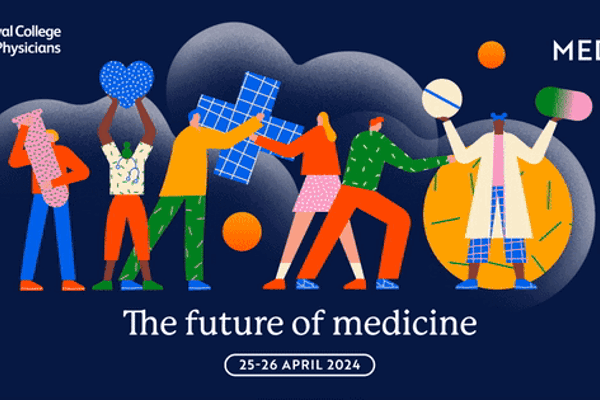In 2021 the RCP responded to the Inner South London assistant coroner’s report to prevent future deaths following the death of Ella Adoo-Kissi-Debrah. Since then we have taken action and report here on progress.
On 15 February 2013, 9 year old Ella Adoo-Kissi-Debrah died following an asthma attack. In 2019 the coroner re-opened the investigation and it concluded in December 2020.
The narrative conclusion of the inquest was that Ella died of asthma, contributed to by exposure to excessive air pollution. It was the first time that air pollution was listed as a cause of death in the UK and was hailed as a landmark decision by campaigners in the health and environment sectors.
On 20 April 2021 the coroner issued a regulation 28 report to prevent future deaths based on the evidence presented at the inquest. The RCP was one of the organisations required to respond to the concern that “the adverse effects of air pollution on health are not being sufficiently communicated to patients and their carers by medical and nursing professionals.”
In our response, we said that we would work with specialist societies, the Academy of Medical Royal Colleges and other royal college partners, the UK Health Alliance on Climate Change and others to do a number of things.
Help medical professionals have conversations with patients and their families
We have written to all our members to tell them about Clean Air Day resources, particularly those that will help healthcare professionals have conversations with patients and their families. We have also highlighted the GAP Clean Air Hub, which aims to collect ‘everything you need to know about air pollution’ in one place.
These resources were produced by Global Action Plan and the UK Health Alliance on Climate Change (UKHACC) with support from Defra. As a leading member of UKHACC, we help increase knowledge by supporting it to produce resources and hold events for healthcare professionals.
Help medical professionals become local advocates for reducing air pollution
Alongside their resources to support conversations, Global Action Plan has produced the following:
We are also promoting these to our members as free resources to help them develop action to clean up air locally.
Work with government and the NHS to improve incentives to have these conversations and systems that indicate when they are necessary
This is an area that requires more work between the relevant royal colleges, NHS and government. In 2022/23 we will foster these conversations.
Decide how to increase knowledge among physicians of the impacts of air pollution on health
We will also continue to produce our own resources for members, such as our new podcast episode on air pollution, health inequalities podcast episodes focusing on air pollution and sustainability, and the Samuel Gee Lecture 2022, Air pollution: the greatest environmental health challenge of our time. We will continue to include the impacts of air pollution in our major conferences, our member magazine Commentary and our journals.
We will continue to highlight the impacts of air pollution via the media. Our special adviser on air quality, Professor Sir Stephen Holgate, is regularly called upon.
In 2022/23, we will seek funding for a clinical fellow to produce educational resources. We hope these will focus on the impacts of air pollution and climate change more widely.
Review the delivery of the internal medicine curriculum
The Federation of Royal Colleges of Physicians of the UK sets and maintains standards for high quality UK medical training via the Joint Royal Colleges of Physicians Training Board (JRCPTB). JRCPTB sets the Internal Medicine curriculum, which forms the first stage of specialty training for most physicians.
Responsibility for implementing the curriculum sits with Heads of School, who confirm that teaching does include the impact of air pollution. However, while there are many things that need to be covered by the curriculum, air pollution may not receive the attention it deserves in all training. We will therefore keep this under review.
Urge national and local government to tighten regulation of pollution generating activity and improve public information
We continue to urge government to place ever tighter restrictions on polluting activity. This week we will be bringing together the chief medical officer, Professor Sir Chris Whitty, officials from the Department for Health and Social Care, campaigners and royal colleges to discuss progress.
We are also responding to the government’s consultation on environmental targets. Our key points will be that
-
the target date for achieving an annual mean concentration target of 10 micrograms per cubic metre (10μg m-3) of fine particles (PM2.5) should be adjusted from 2040 to 2030
-
10μg m-3 must be seen as an interim target - the government’s ultimate objective should be to reduce annual mean concentration for PM2.5 to 5μg m-3 in line with WHO’s updated air quality guideline values
-
the target date for achieving a 35% reduction in population exposure to PM2.5 should be adjusted from 2040 to 2030
-
government must also bring forward proposals for reducing ultrafine particles.




